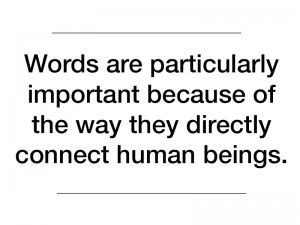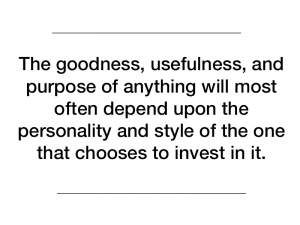I was challenged and encouraged by the Faith and Justice Symposium last weekend, as I have been every year. Props to Ndunge Kiiti and her team. But, as usual at such gatherings, I was confronted by the idea that we are being asked to “speak for those who cannot speak for themselves.” When I commented on this statement, which was printed on the Bread for the World banner and read at the end of Eugene Cho’s chapel, a friend asked why I was so against it and suggested that perhaps I misunderstood the intended meaning.
What, then, could such statements mean? To me, it implies that there are people who cannot speak, people who are voiceless (another term sometimes used in the humanitarian domain). I take it as a claim of dependence upon those who have voices and power and an inability of the impoverished and oppressed to think and act on their thoughts. Am I reading too much into the words? Is the sentiment of concern and the call to action behind the words all that matters in the end? Perhaps it is just important to have someone stand up for those who are marginalized, no matter who it is taking the stand, as long as they are saying something that seems to be in the interest of the poor. Can good intentions alone produce meaningful and sustainable solutions to global issues that are rooted in the unequal distribution of power?
 Theorists of dialogue and of critical thought, such as Wells, Bakhtin, Freire, and Gee, often suppose a powerful relationship between action, thought, and word. The connections among action, thought, and word are inconspicuous, but they are tight. They are so tightly woven that it is impossible, I think, to fully define the ways they influence each other. It is not enough to simply suggest that our thoughts affect the ways we speak, that our words will inform our actions, or that our actions prove what we really are thinking. The three are deeply fused, and I think that that is part of what defines humanity, and perhaps life in general. Words are particularly important because of the way they directly connect human beings.
Theorists of dialogue and of critical thought, such as Wells, Bakhtin, Freire, and Gee, often suppose a powerful relationship between action, thought, and word. The connections among action, thought, and word are inconspicuous, but they are tight. They are so tightly woven that it is impossible, I think, to fully define the ways they influence each other. It is not enough to simply suggest that our thoughts affect the ways we speak, that our words will inform our actions, or that our actions prove what we really are thinking. The three are deeply fused, and I think that that is part of what defines humanity, and perhaps life in general. Words are particularly important because of the way they directly connect human beings.
When we say that we are speaking for someone, we not only imply that we are better able to communicate their concerns and ideas, but we also put them in a specific social position. Perhaps the “cannot” in the statement is not meant to indicate an inability on the part of the oppressed. Perhaps it is meant to imply a lack of power or place to speak, which, according to Jackie Ogega, director of a non-profit that promotes peace and grassroots development in rural African communities, is one definition of poverty. Maybe the purpose of the statement is to call people to speak alongside those lacking power and a place to tell their story. But the “for” makes me think otherwise. The “for” acknowledges the power that we (faith-based people, do-gooders, the privileged, etc.) have and perpetuates the hold we have on that power. It encourages dependence, which feeds into the savior complex that the West already suffers from, and inhibits the human right and ability to communicate one’s own desires and solutions for one’s community. I have been profoundly impacted by the work of Paulo Freire, who said that the oppressed must be the ones to lead in their struggle for liberation if they are to claim their dignity. I believe that speaking for people has terrifying potential to deny that dignity and strip them of their humanity.
I was empowered by Eugene Cho, personally and through his message. Bread for the World is an impressive organization that has a powerful influence and vision for change in the government and in systems that allow hunger and poverty to continue. I believe that everyone who took part in the Symposium had good intentions, and I am sure there are many who have considered the same things I have here. But if we truly desire to be champions of justice, we all must begin to think about the ways our words affect our worldviews and the way we relate to the injustices in our world.

